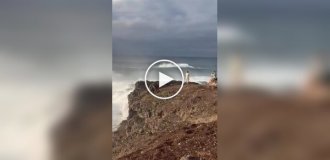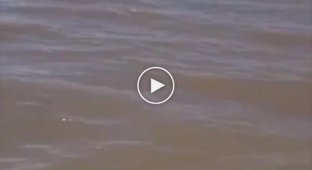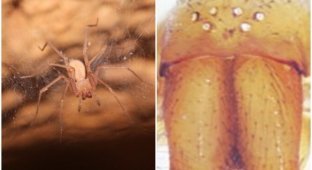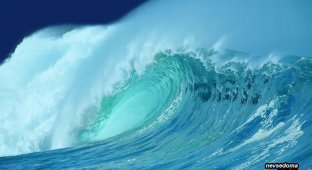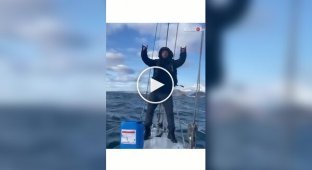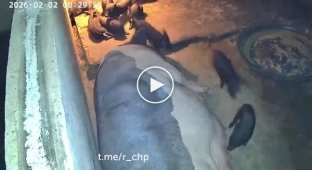There, thin-legged sea spiders slowly walk along the bottom. Their eyes blindly search around, and their proboscis twitches greedily in anticipation of prey from which they can suck all the juices. They bring death, fear and devastation... to designers. After all, the internal design of these arthropods causes nervous hiccups among those who understand even a little about ergonomics. 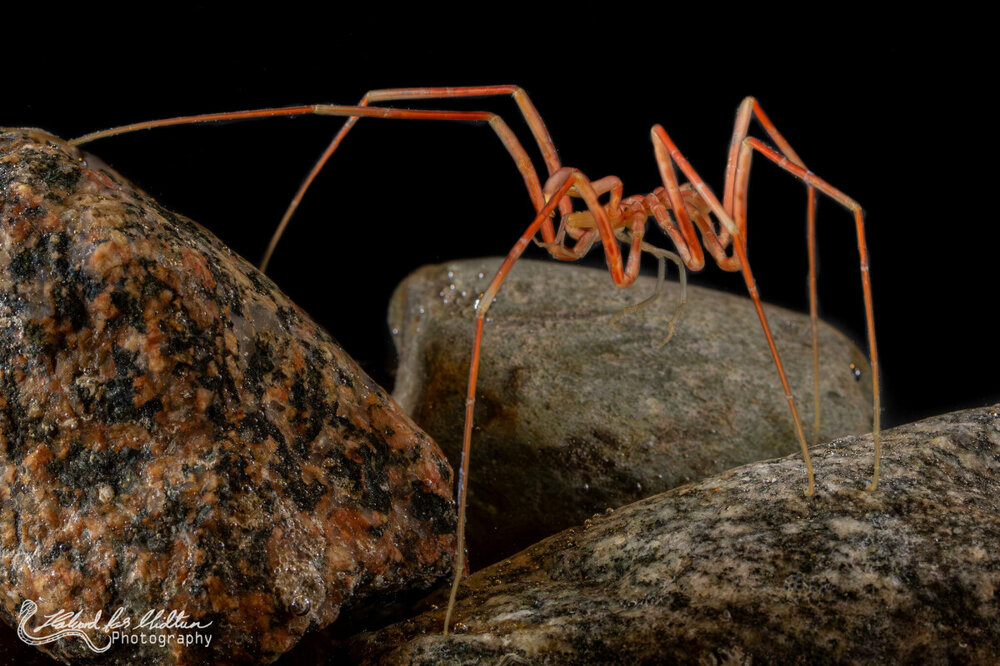
One of the largest representatives of sea spiders.
Sea spiders are an order of 1,300 species found in all parts of the world's oceans. Most of them have never actually seen sunlight, because they live at depths of 1000 to 7000 meters. 200 years ago, biologists decided that they had discovered spiders that had gone to live in the sea. 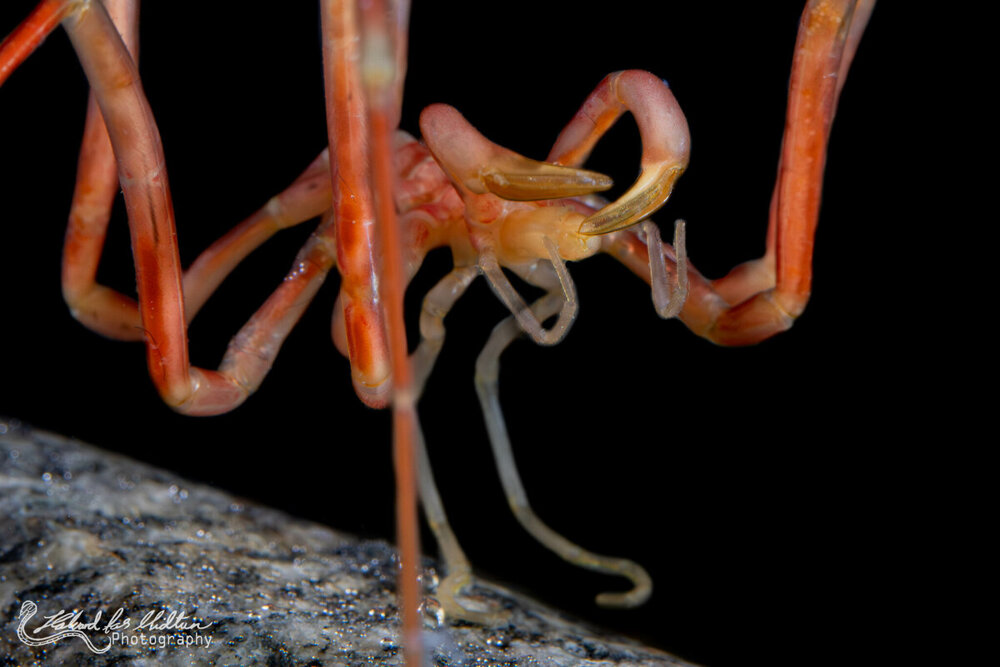
Upside down claws...hope he's comfortable.
But modern researchers know that the evolutionary paths of land and sea spiders diverged half a billion years ago, so they prefer to call them pantopods or multi-articulates. 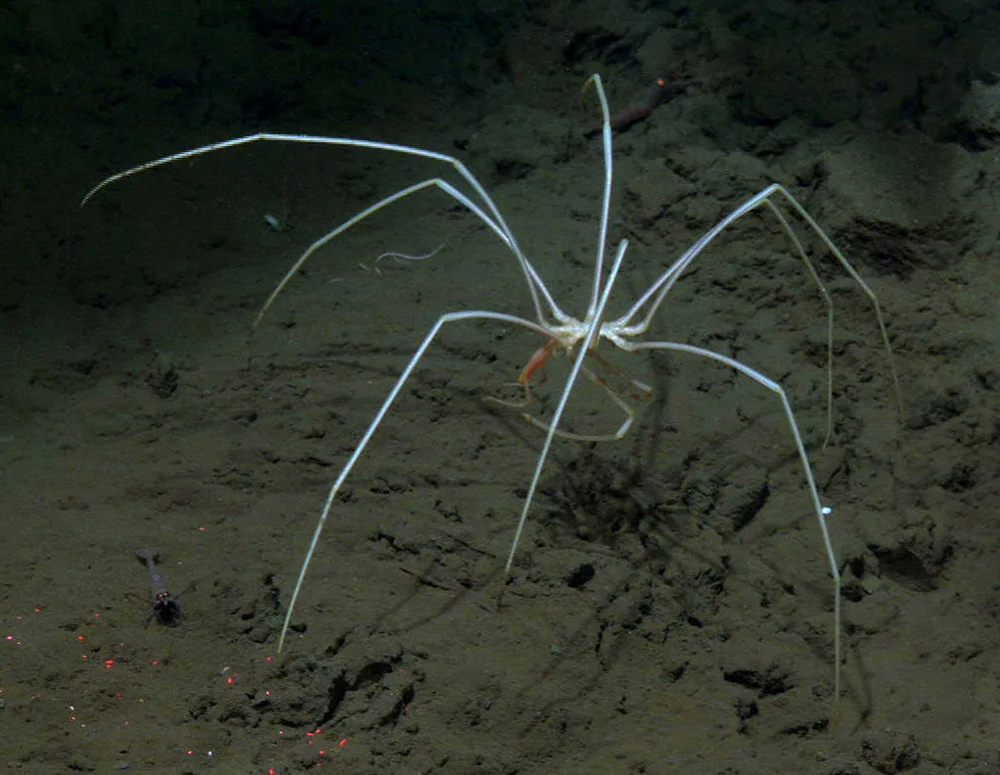
At great depths, the bodies of sea spiders lose pigment.
The only thing the two groups of arthropods have in common is chelicerae—special legs for striking and holding prey. Even the oral apparatus of animals is different. Pantopods feed from a proboscis - their own invention. The robust outgrowth of the cephalothorax is richly decorated with sensory hairs and chitinous denticles; it is ideal for sucking fluids from corals, sponges, mollusks and worms. 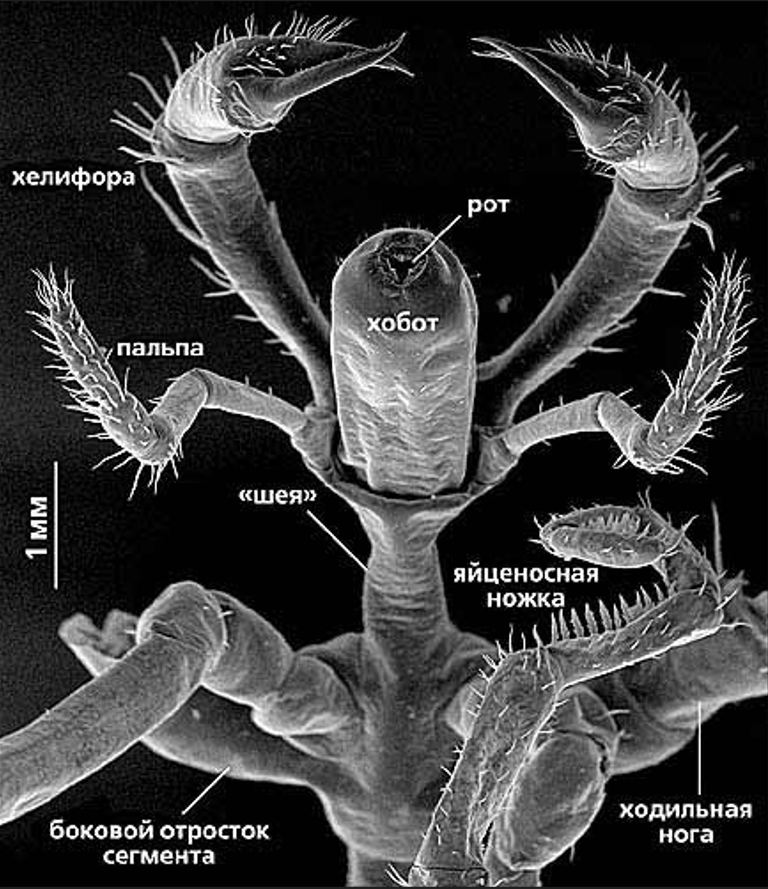
Here's a quick primer on the structure of a sea spider.
They also have a cephalothorax and abdomen, like crayfish and spiders. But it’s hard to call them full-fledged parts of the body. It's just a jumper with almost nothing in it! But they have legs - my mother is a woman! The spider's limbs are at least 3 times longer than the body. It is the contrast between the microscopic body and huge paws that turns arthropods into eerie monsters. Why do pantopods have such huge paws? Oddly enough to walk. If a spider encounters a large obstacle on its way, it will simply step over it. 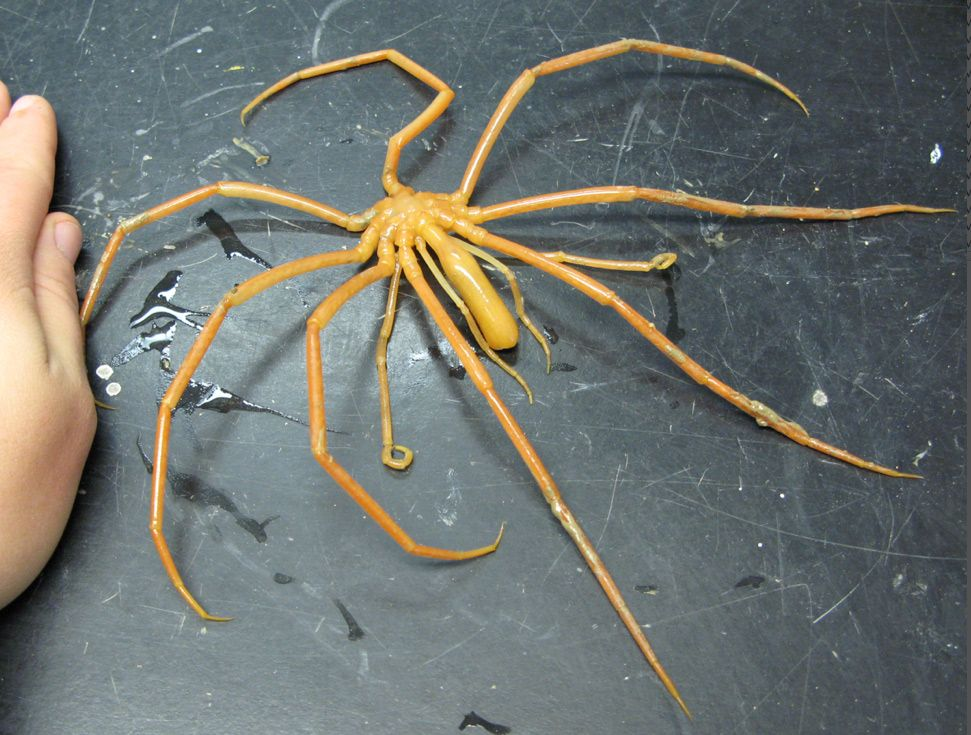
These are the ones whose legs really grow from their ears.
Only pantopods move very slowly. His muscles are very small: some muscles even consist of one cell. That’s why puny little bodies have little strength. And that is great! A sea spider will never suddenly jump out of the bottom to tickle your heel. He is a slow wanderer of the bottom wastelands, content with little. Sometimes these animals move at such a snail's pace that they themselves become overgrown with sponges and sessile ciliates. 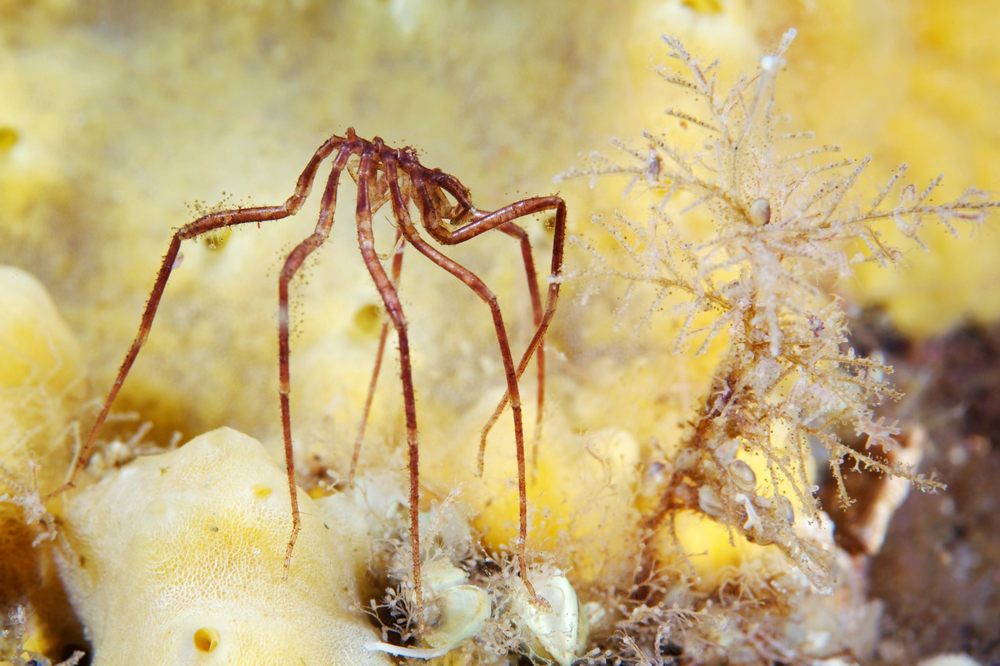
Look at the paws. The spider stood still for so long that it became overgrown with ciliates!
But they can’t add more muscle to the limbs, the organs get in the way! Since the animal’s body is small, it had to push the insides over its paws. In addition to nerves, blood vessels and the lymphatic system, reproductive organs with diverticula - outgrowths of the intestine - are also clustered there. 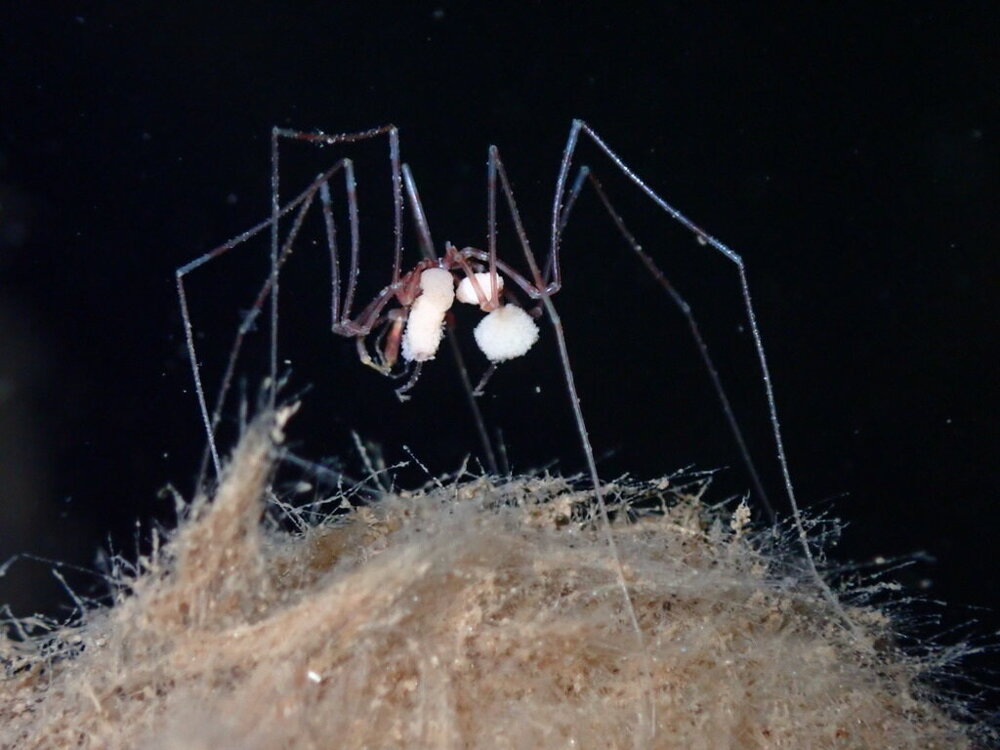
Sea spider with eggs. It is difficult to determine which sex, since in sea spiders it is the males that often bear the eggs.
Pantopods fell into an evolutionary trap. To move higher up the food chain, they need to become faster. To do this, you will have to increase the volume of the body and drag the insides back into it. But while the animal is doing this, it will become heavier and even slower, so it is guaranteed to lose to other bottom dwellers. 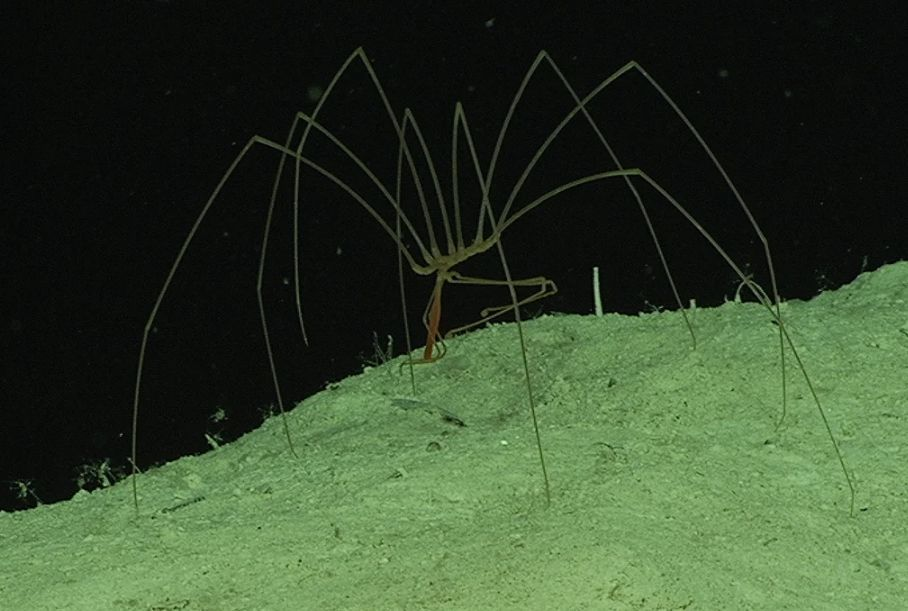
The deeper into the ocean, the longer the legs.
But there are also advantages to this situation, which is why the animals have not yet become extinct. Pantopods are very thrifty organisms; they can go without eating for months without any apparent health problems. And they don’t need to breathe either: arthropods absorb oxygen over the entire surface of their bodies, and they were able to abandon expensive and vulnerable gills. 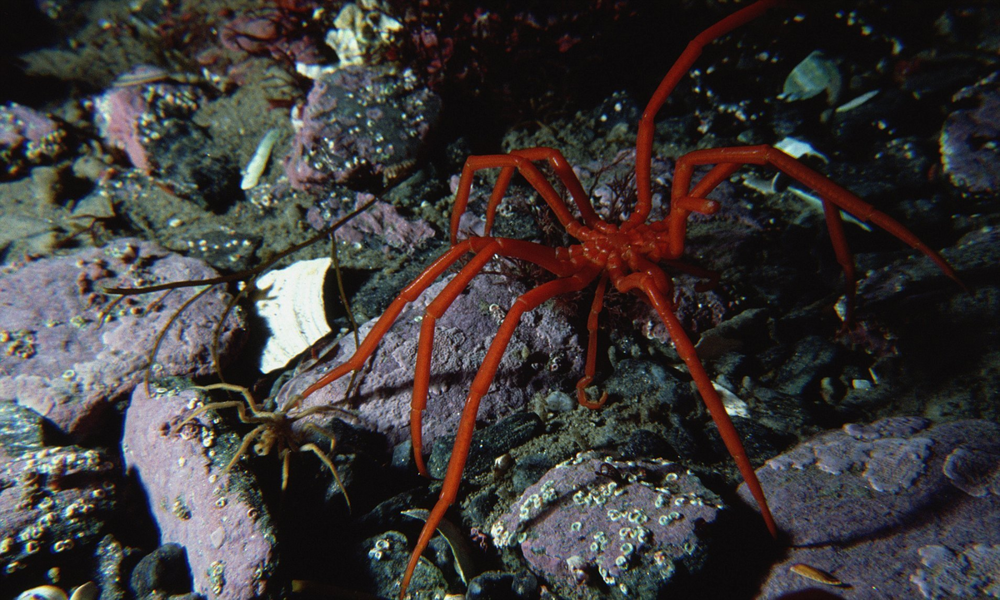
In the cold waters of the Arctic Ocean, focusing on economy works5+!
Therefore, sea spiders are not in danger of extinction in the near future; they stand firmly on all their 8-16 legs. But if the rules of life on the seabed change, the strange relatives of spiders will die. 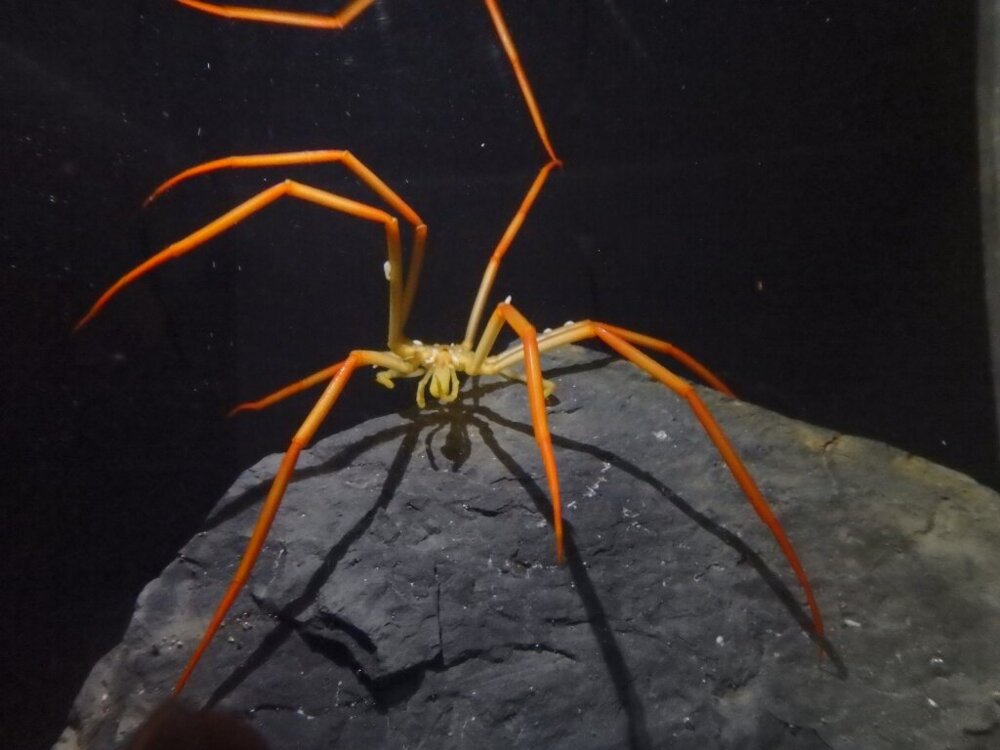
Bye, little man!
Add your comment
You might be interested in:

